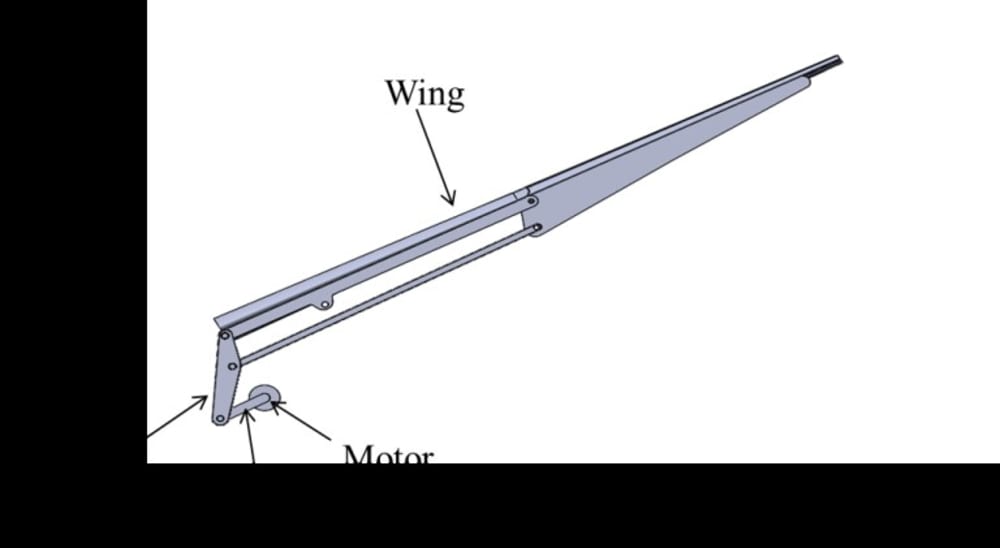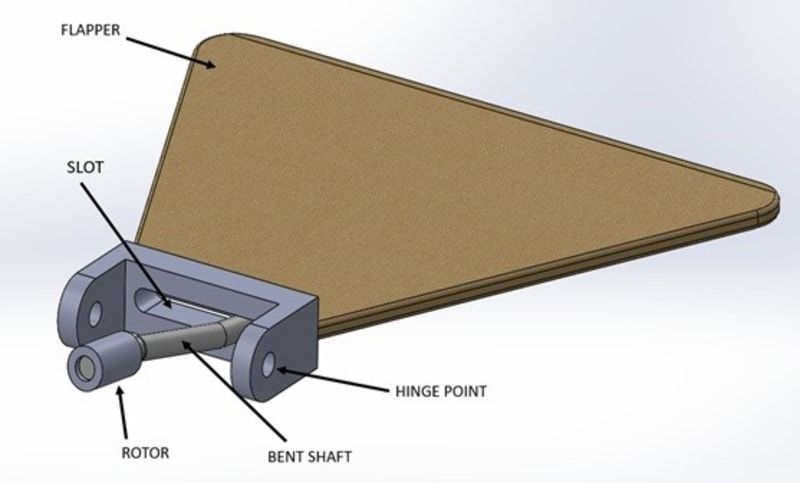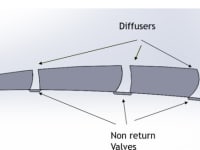The report deals with the concept of using flapping wing as a mode of flight for light unmanned aerial vehicles. Using biomimetics, the study of a bird flight is made followed by the design proposal which mimics this bird flight mechanism. A detailed calculation is then made for calculating lift and thrust produced by a single wing including the benefits of diffuser lift provided by the unique wing design. Finally, the kinematic, aerodynamic and dynamic equations of motion are derived for the rear flapper.
Another means of reducing the negative lift generated during the upward stroke is by making use of diffuser type entities combined with a NRV (Non-Return Valve) type arrangement on the lower side of the wing. This basic idea comes from studying the bird flight where the feathers on a bird’s wings open up, creating gaps in between to facilitate air to leak through them and hence restrain the formation of the negative pressure gradient across its wings and thereby the negative lift generation is safely avoided.
When a aircraft is flying at some particular constant height for cruising weight should be equal to lift while thrust should be equal to drag. When ornithopter is flying in such circumstances high lift is not required just by unsymmetrical airfoil shape required lift can be produced
So in order to reduce power consumption during such cases ornithopter is provided with an oscillatory propulsion system (Rear flapper) that just by oscillating tail like a fish will provide sufficient thrust force at lower power consumption.
Like this entry?
-
About the Entrant
- Name:Suyash Pandya
- Type of entry:teamTeam members:Suyash Pandya Bonny Dave
- Software used for this entry:Solidworks, Hyperworks
- Patent status:none








